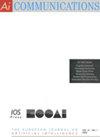进化多目标物理信息神经网络:MOPINNs 方法
IF 1.4
4区 计算机科学
Q4 COMPUTER SCIENCE, ARTIFICIAL INTELLIGENCE
引用次数: 0
摘要
物理信息神经网络的表述方式允许神经网络通过训练数据和模拟数据的物理系统的先验领域知识进行训练。特别是,它有一个数据和物理的损失函数,后者是描述系统的偏微分方程的偏差。传统上,这两个损失函数通过加权和来组合,其权重通常由人工选择。众所周知,平衡不同的损失项可以提高训练过程的效率。此外,有必要找到神经网络的最佳架构,以便找到更容易训练 PINN 的假设集。在我们的工作中,我们提出了一种多目标优化方法,以找到损失函数加权的最优值,以及最优激活函数、层数和每层神经元数。我们在泊松方程、伯格斯方程和平流扩散方程上验证了我们的结果,并表明我们能够利用最优超参数找到精确的近似解。本文章由计算机程序翻译,如有差异,请以英文原文为准。
Evolutionary multi-objective physics-informed neural networks: The MOPINNs approach
Physics-informed neural networks formulation allows the neural network to be trained by both the training data and prior domain knowledge about the physical system that models the data. In particular, it has a loss function for the data and the physics, where the latter is the deviation from a partial differential equation describing the system. Conventionally, both loss functions are combined by a weighted sum, whose weights are usually chosen manually. It is known that balancing between different loss terms can make the training process more efficient. In addition, it is necessary to find the optimal architecture of the neural network in order to find a hypothesis set in which is easier to train the PINN. In our work, we propose a multi-objective optimization approach to find the optimal value for the loss function weighting, as well as the optimal activation function, number of layers, and number of neurons for each layer. We validate our results on the Poisson, Burgers, and advection-diffusion equations and show that we are able to find accurate approximations of the solutions using optimal hyperparameters.
求助全文
通过发布文献求助,成功后即可免费获取论文全文。
去求助
来源期刊

AI Communications
工程技术-计算机:人工智能
CiteScore
2.30
自引率
12.50%
发文量
34
审稿时长
4.5 months
期刊介绍:
AI Communications is a journal on artificial intelligence (AI) which has a close relationship to EurAI (European Association for Artificial Intelligence, formerly ECCAI). It covers the whole AI community: Scientific institutions as well as commercial and industrial companies.
AI Communications aims to enhance contacts and information exchange between AI researchers and developers, and to provide supranational information to those concerned with AI and advanced information processing. AI Communications publishes refereed articles concerning scientific and technical AI procedures, provided they are of sufficient interest to a large readership of both scientific and practical background. In addition it contains high-level background material, both at the technical level as well as the level of opinions, policies and news.
 求助内容:
求助内容: 应助结果提醒方式:
应助结果提醒方式:


